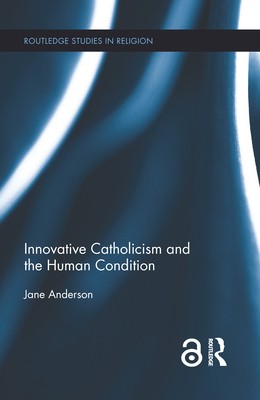
- We will send in 10–14 business days.
- Author: Jane Anderson
- Publisher: Routledge
- ISBN-10: 1138654744
- ISBN-13: 9781138654747
- Format: 16 x 23.1 x 1.8 cm, kieti viršeliai
- Language: English
- SAVE -10% with code: EXTRA
Reviews
Description
Innovative Catholicism and the Human Condition gives an anthropological account of a progressive religious movement in the Roman Catholic Church that is attempting to reconcile religious conviction and reason, and, ergo, modify the human condition. Investigation is given to a representative group of this movement, "Innovative Catholics," who are endeavouring to maintain the momentum for change which began in the 1960s and 1970s. They now find themselves caught between traditional notions of religion and a secularised society, while trying to reconcile these polarising forces to find a pathway forward. While ethnographic fieldwork for this research was conducted in Australia, this movement is to be found across the Western world. The research is framed by the question posed by Jürgen Habermas, who asks whether the democratic constitutional state is able to renew itself, and recognises a benefit in learning from religion. Cardinal Joseph Ratzinger, subsequently Pope Benedict XVI, responds by asserting the need for a common ethical basis and limits on reason. This latter position, however, remains problematic for Innovative Catholics who are conscious of history and culture. The research explores how Innovative Catholics, who in taking the middle position, inform this dialectic on secularization through their ideas and practices about the human condition.
EXTRA 10 % discount with code: EXTRA
The promotion ends in 22d.17:42:10
The discount code is valid when purchasing from 10 €. Discounts do not stack.
- Author: Jane Anderson
- Publisher: Routledge
- ISBN-10: 1138654744
- ISBN-13: 9781138654747
- Format: 16 x 23.1 x 1.8 cm, kieti viršeliai
- Language: English English
Innovative Catholicism and the Human Condition gives an anthropological account of a progressive religious movement in the Roman Catholic Church that is attempting to reconcile religious conviction and reason, and, ergo, modify the human condition. Investigation is given to a representative group of this movement, "Innovative Catholics," who are endeavouring to maintain the momentum for change which began in the 1960s and 1970s. They now find themselves caught between traditional notions of religion and a secularised society, while trying to reconcile these polarising forces to find a pathway forward. While ethnographic fieldwork for this research was conducted in Australia, this movement is to be found across the Western world. The research is framed by the question posed by Jürgen Habermas, who asks whether the democratic constitutional state is able to renew itself, and recognises a benefit in learning from religion. Cardinal Joseph Ratzinger, subsequently Pope Benedict XVI, responds by asserting the need for a common ethical basis and limits on reason. This latter position, however, remains problematic for Innovative Catholics who are conscious of history and culture. The research explores how Innovative Catholics, who in taking the middle position, inform this dialectic on secularization through their ideas and practices about the human condition.


Reviews